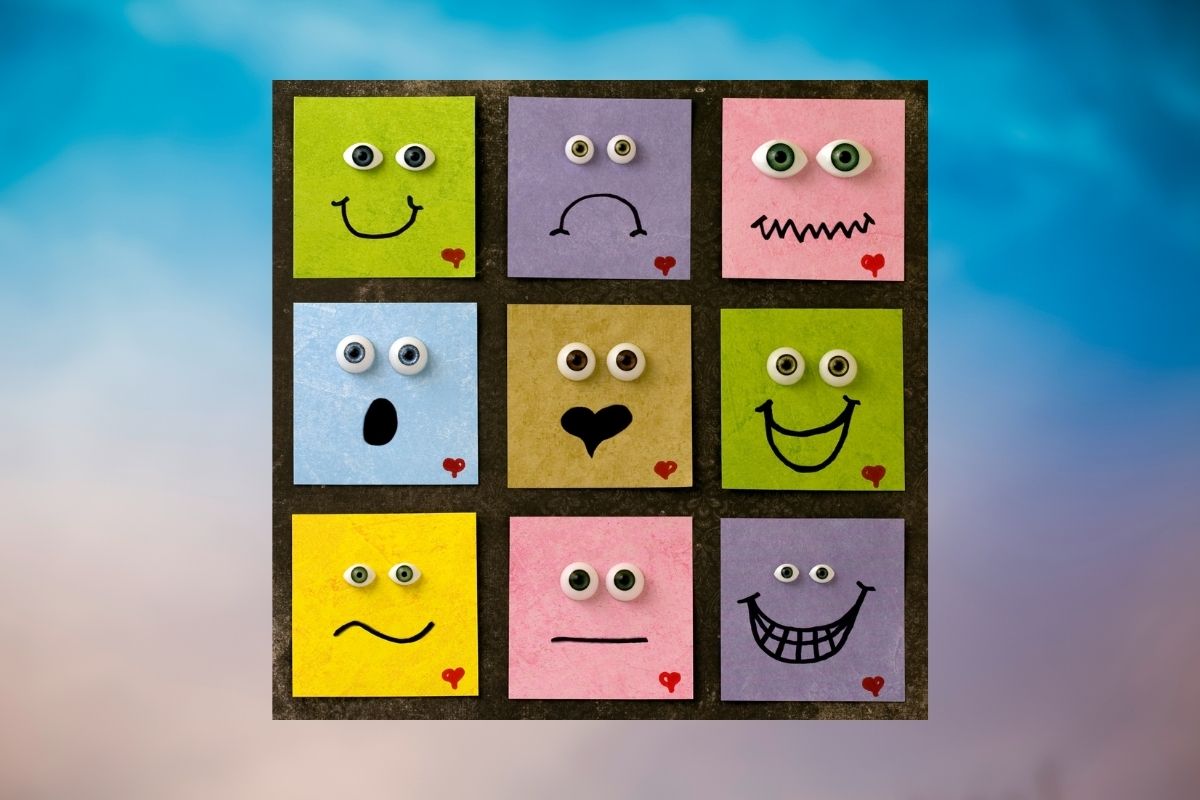
Just finished reading an article called “Measures of Emotion: A review”. My hats off to the authors (Mauss & Robinson, 2009) for their succinctness of title (and for the article itself).
I found this article via Effectiviology, a blog I enjoy about how to think better.
The details of the article are probably more interesting to those doing research in emotion, particularly those trying to measure emotion. But a core finding has clinical value and I thought it worthy of a quick discussion.
Broadly speaking, the authors concluded that from a measurement perspective, dimensional models of emotion are better at capturing the essence of emotional states better than discrete models.
If that sounds like gobbledygook to you, don’t worry. The practical takeaway is a simple tool for reflecting more usefully on how we are feeling, especially for those of us who perhaps struggle to find the words for our feelings at times.
I suck at feelings
I get asked how I feel a reasonable amount (that’s what you get when you are surrounded by mental health professionals :))
Despite my training and the fact I get asked quite a bit, I’m not actually that great at naming how I am feeling. I usually draw a blank and end up saying something naff like ‘yep, ok’ or ‘meh’ or ‘neh’. None of those are good answers and certainly not helpful for me or the person asking.
The implications of the article are that perhaps instead of trying to find the right feeling word, I should focus on some key dimensions of how I feel.
- Arousal – Am I in a high energy state, a low energy state or somewhere inbetween?
- Valence – Am i feeling positive or negative or neutral?
- Motivation – Am I feeling like moving towards life (approach), away from life (avoidance) or kinda stuck in place?
I find responding to these dimensions much easier than finding the right emotion word.
For example, as I write this post, I am in a low arousal state, feeling neutral but motivated to move towards life – maybe something approaching ‘calm’.
When I woke up however, I was low arousal, negative valence and felt like avoiding life. 20 minutes of yoga seemed to turn that into the state I find myself in now.
Would thinking about your emotional state in these terms help you explore your feeling states more often?
Why should I explore how I am feeling?
Naming and describing how we are feeling is an important psychological skill, one that helps us regulate our emotions (i.e. modify or adapt to how we are feeling). It is harder to take charge of our emotions when we are unable to name and define them.
Emotion regulation is something we hopefully learn as we are growing up, but depending on your history, your genetics and a bunch of other factors, you may struggle at times to regulate different types of emotion.
What does that feel like? It feels like your emotions controlling you, rather than you controlling your emotions.
If this sounds like you, then learning how to better emotionally regulate might be a valuable skill to learn. You can start with learning to describe your emotions better using the above technique.
Try describing how you feel right now?
- What is your energy level? (high energy emotions include anxiety and anger and excitement, low energy emotions include sadness or calm)
- Would you say you are feeling positive or negative, or whereabouts in between?
- Does how you feel make you want to push towards life, or pull away from life?
Once you have these dimensions described, you can think about what you might do to modify your feeling state.
Too high energy? – try relaxed slow breathing, progressive muscle relaxation, self-hypnosis, a relaxation meditation.
Too low energy? – go for a walk/ exercise, catch up on some sleep, do something intellectually stimulating (e.g. play some word games on your phone).
Feeling excessively negative? – try implementing a positive mood inducing activity, seek social contact and support, learn some CBT.
Feel like pulling away from life? – just focus on small little helpful wins (e.g. tidy room, cook some lunch), commit to just 30 minutes of study, remind yourself of your goals, values and aspirations, clarify your goals
If these are more chronic emotional states (i.e. always feeling low energy, always feeling negative, always want to pull away from life), then maybe it is a cue to seek some formal assistance. Talk to a GP, counsellor, psychologist.
Final thoughts
Being able to describe and name emotions is an important emotional regulation skill. For those that struggle in this regard, a dimensional approach to thinking about how we are feeling might be a helpful starting point. Instead of getting the exact right feeling word, focus instead on describing your energy level, valence and motivation. Then make choices about what you’ll do next based on that analysis.
For more ideas on emotional regulation, I found this article recently which I liked, which offers some practical advice on managing difficult emotions.

